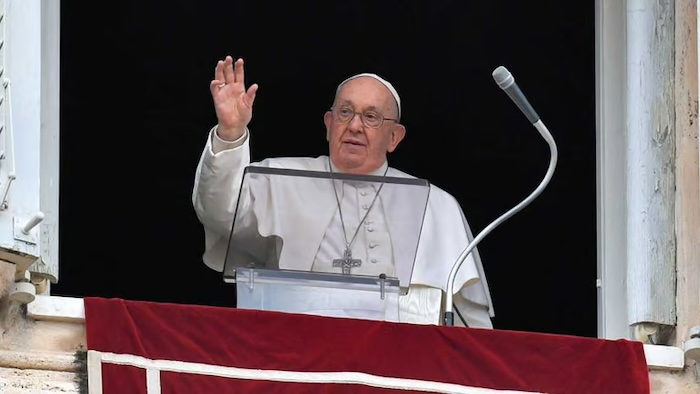— He suggests that those in the Catholic Church who have resisted it have jumped to ‘ugly conclusions’ because they do not understand it

by Philip Pullella
Pope Francis on Sunday defended a landmark decision approving blessings for same-sex couples, suggesting that those in the Catholic Church who have resisted it have jumped to “ugly conclusions” because they do not understand it.
In a television interview, Francis made his first public comments since the Dec 18 declaration sparked widespread debate in the Church, with bishops in some countries, particularly in Africa, refusing to let their priests implement it.
“Sometimes decisions are not accepted, but in most cases when decisions are not accepted, it is because they are not understood,” Francis said in response to a specific question about the December declaration.
“The danger is that if I don’t like something and I put it (the opposition) in my heart, I become a resistance and jump to ugly conclusions,” he said during a link from his Vatican residence with the “Che Tempo Che Fa” programme on Italy’s Channel 9.
“This is what happened with these latest decisions on blessings for all,” he said, referring to the declaration known by its Latin title Fiducia Supplicans (Supplicating Trust). It was issued by the Vatican’s doctrinal department and approved by him.
Since the original declaration, the Vatican has been at pains to stress that the blessings did not amount to an approval of gay sex and should not be seen as anything remotely equivalent to the sacrament of marriage for heterosexual couples.
But even a clarification earlier this month from the Vatican’s doctrinal department did not sway bishops in Africa, where in some countries same-sex activity can lead to prison or even the death penalty.
They issued a letter last week saying the December declaration had caused “unrest in the minds of many” and could not be applied because of the continent’s cultural context.
Some bishops in France told their priests they could bless gay individuals but not couples.
Complete Article ↪HERE↩!
